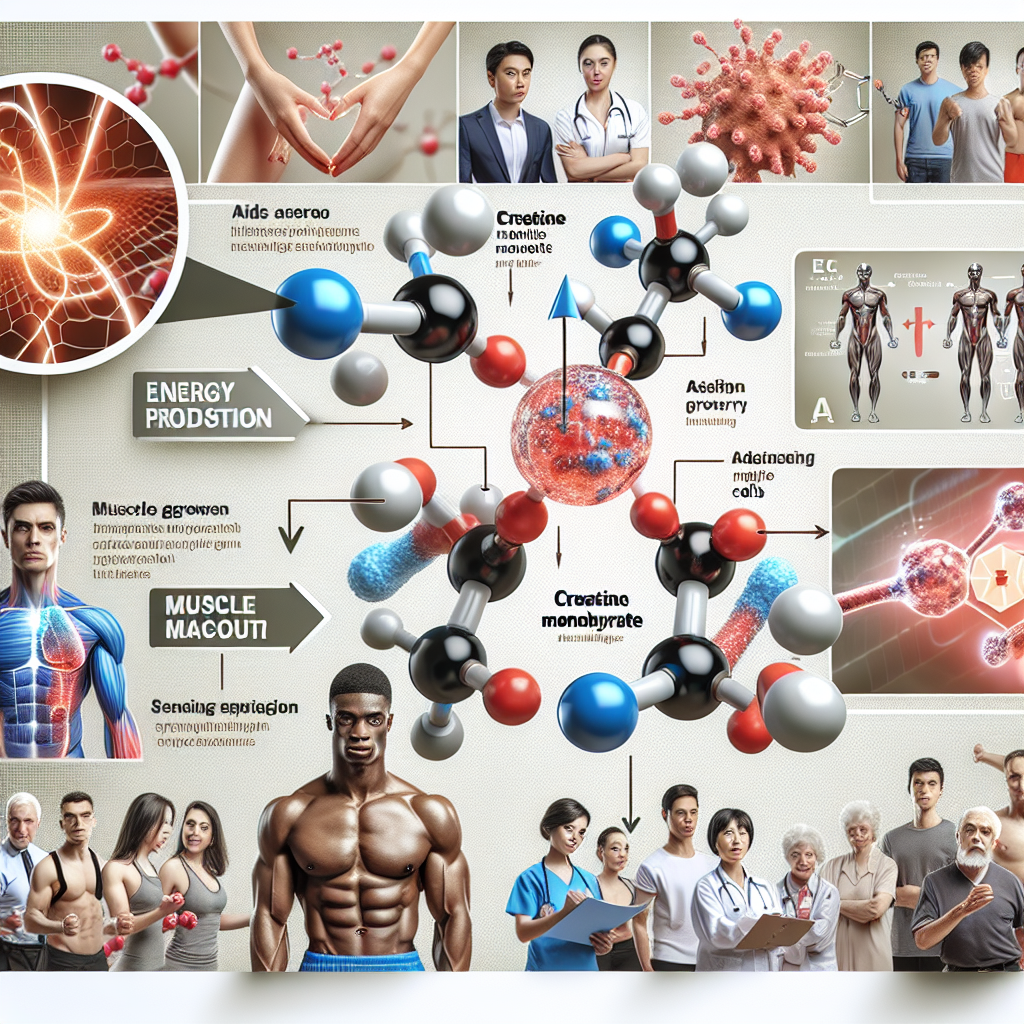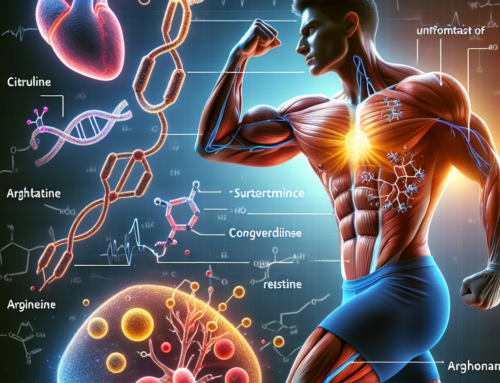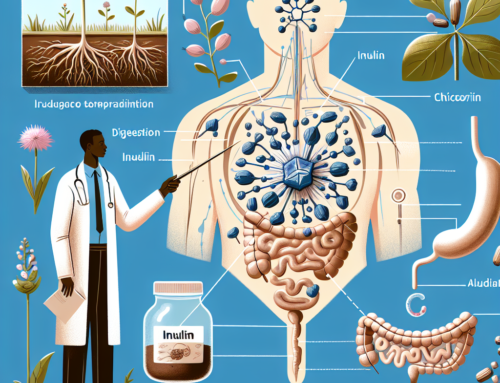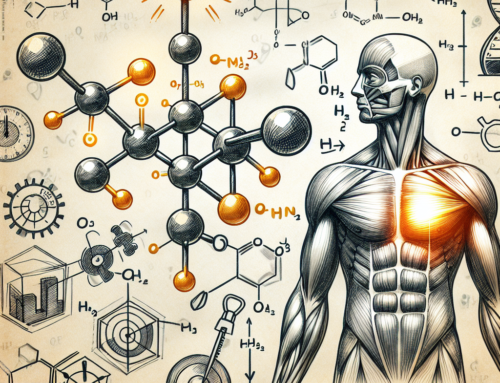Muscle Growth and Strength Benefits of Creatine Monohydrate
Creatine monohydrate is a popular supplement among athletes and fitness enthusiasts for its ability to enhance muscle growth and strength. But what exactly is creatine monohydrate, and how does it work in the body to produce these benefits?
Creatine is a naturally occurring compound found in small amounts in foods like red meat and fish. It plays a crucial role in the production of adenosine triphosphate (ATP), which is the primary energy source for muscle contractions during high-intensity exercise. When you supplement with creatine monohydrate, you increase the levels of creatine in your muscles, allowing them to produce more ATP and perform better during workouts.
One of the key benefits of creatine monohydrate is its ability to increase muscle mass. Studies have shown that creatine supplementation can lead to significant gains in muscle size, particularly in combination with resistance training. This is because creatine helps to draw water into muscle cells, creating a more favorable environment for muscle growth. Additionally, creatine has been shown to increase the levels of certain growth factors in the body, further promoting muscle hypertrophy.
In addition to muscle growth, creatine monohydrate has been shown to improve strength and power output. By increasing the availability of ATP in the muscles, creatine allows for more intense and prolonged exercise, leading to greater gains in strength. This is particularly beneficial for activities like weightlifting, sprinting, and other explosive movements that rely on short bursts of energy.
Another benefit of creatine monohydrate is its ability to enhance recovery. After intense exercise, muscle cells are depleted of ATP and other energy sources, leading to fatigue and muscle damage. By supplementing with creatine, you can replenish these energy stores more quickly, allowing for faster recovery and reduced muscle soreness. This means you can train harder and more frequently, leading to greater gains in muscle mass and strength over time.
It’s important to note that creatine monohydrate is one of the most well-researched supplements on the market, with numerous studies supporting its safety and efficacy. In fact, the International Society of Sports Nutrition considers creatine monohydrate to be one of the most effective supplements for improving exercise performance and muscle growth.
When it comes to dosing creatine monohydrate, most experts recommend a loading phase of 20 grams per day for 5-7 days, followed by a maintenance dose of 3-5 grams per day. This loading phase helps to quickly saturate the muscles with creatine, while the maintenance dose helps to maintain elevated levels over time. It’s also important to drink plenty of water when supplementing with creatine, as it can cause dehydration if not taken with enough fluids.
In conclusion, creatine monohydrate is a powerful supplement with a wide range of benefits for muscle growth and strength. By increasing ATP production, promoting muscle hypertrophy, and enhancing recovery, creatine can help you achieve your fitness goals more quickly and effectively. If you’re looking to take your workouts to the next level, consider adding creatine monohydrate to your supplement regimen.
Cognitive Function and Brain Health Benefits of Creatine Monohydrate
Creatine monohydrate is a popular supplement known for its ability to enhance physical performance, particularly in activities that require short bursts of intense energy, such as weightlifting or sprinting. However, recent research has also shown that creatine may have cognitive function and brain health benefits as well.
One of the key ways in which creatine may benefit the brain is through its role in energy production. Creatine is involved in the production of adenosine triphosphate (ATP), which is the primary source of energy for cells in the body, including brain cells. By increasing ATP levels, creatine may help to improve overall brain function and cognitive performance.
In addition to its role in energy production, creatine may also have neuroprotective effects. Studies have shown that creatine can help to protect brain cells from damage caused by oxidative stress and inflammation, both of which are implicated in the development of neurodegenerative diseases such as Alzheimer’s and Parkinson’s.
Furthermore, creatine has been shown to increase levels of certain neurotransmitters in the brain, such as dopamine and serotonin, which play a key role in regulating mood and behavior. By increasing neurotransmitter levels, creatine may help to improve mood, reduce symptoms of depression and anxiety, and enhance overall mental well-being.
Research has also suggested that creatine may have potential benefits for individuals with neurodevelopmental disorders, such as ADHD and autism. Studies have shown that creatine supplementation can improve cognitive function, attention, and behavior in children with ADHD, while also reducing symptoms of hyperactivity and impulsivity.
Moreover, creatine may also have benefits for older adults, as research has shown that creatine supplementation can help to improve memory and cognitive function in older individuals. This is particularly important given the prevalence of age-related cognitive decline and neurodegenerative diseases in the elderly population.
Overall, the science behind the benefits of creatine monohydrate for cognitive function and brain health is promising. By increasing ATP levels, protecting brain cells from damage, increasing neurotransmitter levels, and improving cognitive function, creatine may offer a range of benefits for individuals looking to enhance their brain health and cognitive performance.
It is important to note that while creatine is generally considered safe for most people when taken at recommended doses, individuals with certain medical conditions or those taking medications should consult with a healthcare provider before starting creatine supplementation. Additionally, more research is needed to fully understand the long-term effects of creatine on cognitive function and brain health.
In conclusion, creatine monohydrate is not just a supplement for athletes looking to improve physical performance – it may also offer a range of benefits for cognitive function and brain health. By increasing energy production, protecting brain cells, and enhancing neurotransmitter levels, creatine has the potential to improve memory, mood, and overall brain function. Further research in this area is needed to fully understand the mechanisms behind these benefits and to determine the optimal dosages and populations that may benefit most from creatine supplementation.
About Puriva Nutrition
Puriva formulates personalized, ready-to-eat nutritional products and sells at wholesale pricing, direct to consumers, in our retail location. The products include 2-ounce shots and more than 100 bulk powders including whey protein isolate, collagen peptides, creatine monohydrate, stevia rebaudioside-M, chicory inulin, phytonutrient powder, fruit powders, curcumin, ashwagandha, saffron, HMB, alpha GPC (alpha-glycerophosphocholine), beta-alanine, every essential amino acid, MSM, chondroitin sulfate, citric acid, CoQ10, HMB (hydroxy- methyl-butyrate), magnesium, calcium, potassium, piperine, ginger root, bacopa extract (50% bacosides), boswellia serrata, green tea extract, lemon balm extract, all essential vitamins, citrulline, beet powder, carrot powder, celery powder, and pre-workout powder.






